Relationship to The Birth of Venus
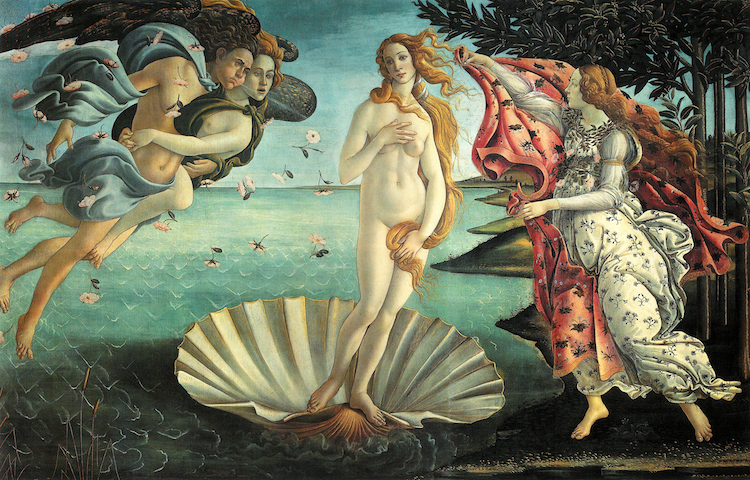
Botticelli, “The Birth of Venus,” c. 1486 (Photo via Wikimedia Commons)
Though not intended as a diptych, Primavera and The Birth of Venus are typically viewed as a pair. Botticelli painted The Birth of Venus in 1486, a few years after Primavera‘s believed conception. In both cases, he employed tempera paint, a traditional medium that uses egg yolk as a binding medium. The paintings are also rendered in roughly the same scale: Primavera measures 6′ 8″ x 10′ 4″, while The Birth of Venus is 5′ 8″ x 9′ 2″.
The biggest similarity between the two pieces, however, is their subject matter. Both pieces feature Venus as the central subject. In Primavera, this figure in rendered in a relatively Gothic style; her posture is static, and she is clothed. In The Birth of Venus, however, she has adopted a move humanist position. She is also nude—an artistic characteristic Botticelli borrowed from classical painting and sculpture.
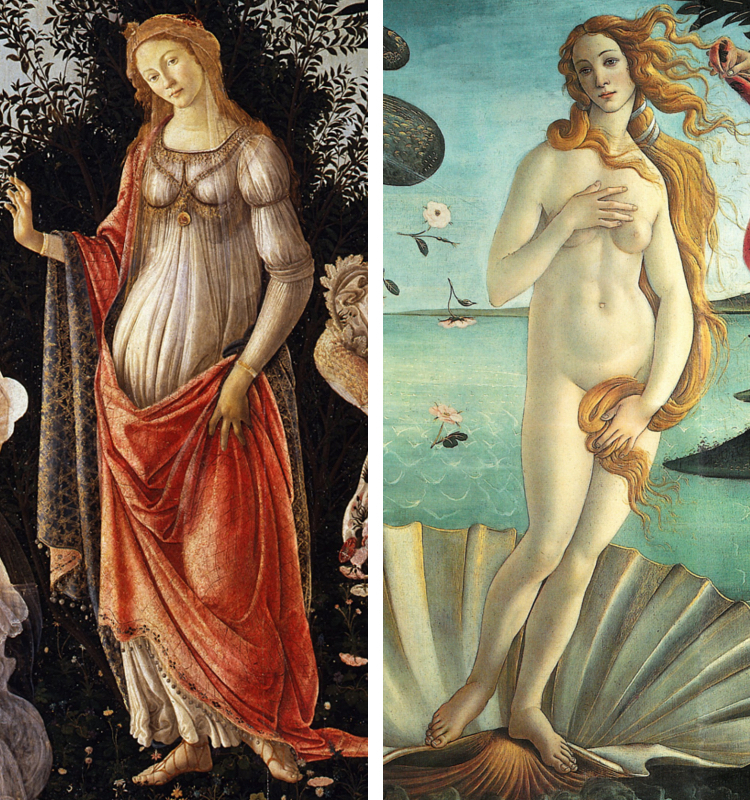
Botticelli also portrayed Zephyr and Chloris in both pieces. In Primavera, flowers spill from Chloris’ mouth; in The Birth of Venus, blossoms and blooms float around the flying pair.
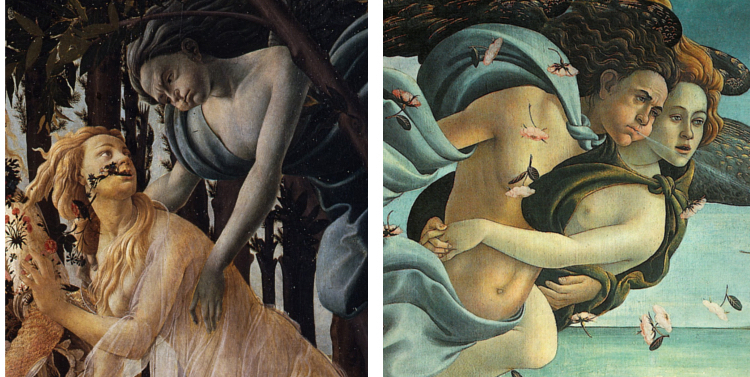
Flora, the goddess of spring, is depicted in both paintings as well. She is identifiable by her gown, which features a floral print and a wreath-like collar. In The Birth of Venus, she is shown covering the newly-born goddess in a red cloak similar to the one draped around her arm in Primavera.
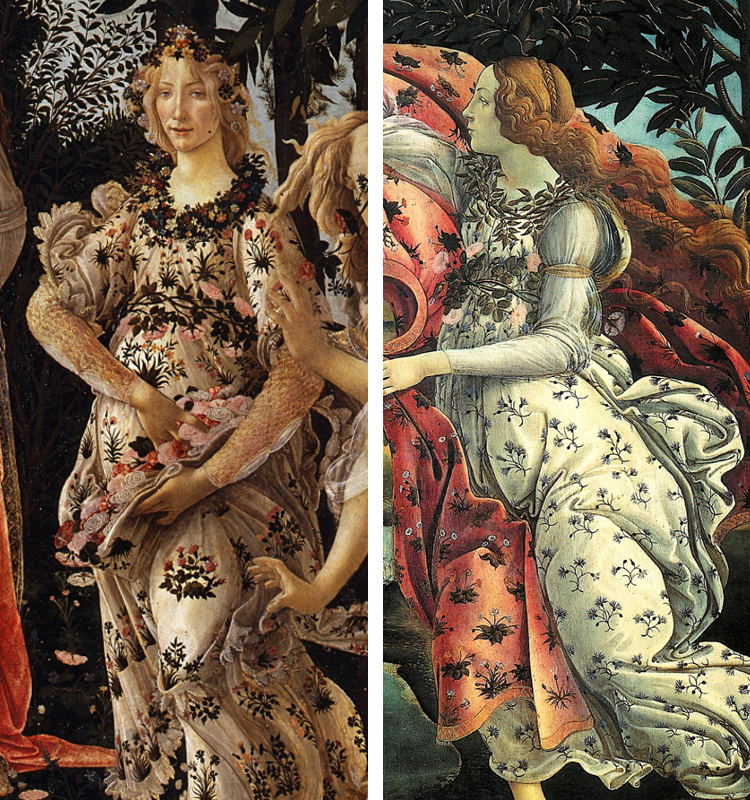
Legacy
Today, Primavera is viewed as an important work of Early Renaissance art. It remains a highlight of the Uffizi Gallery, where it has enchanted the public since it made its museum debut in 1919. Visitors to the esteemed institution can admire both Primavera and The Birth of Venus at once, as both have found a home in its famous Botticelli Room.
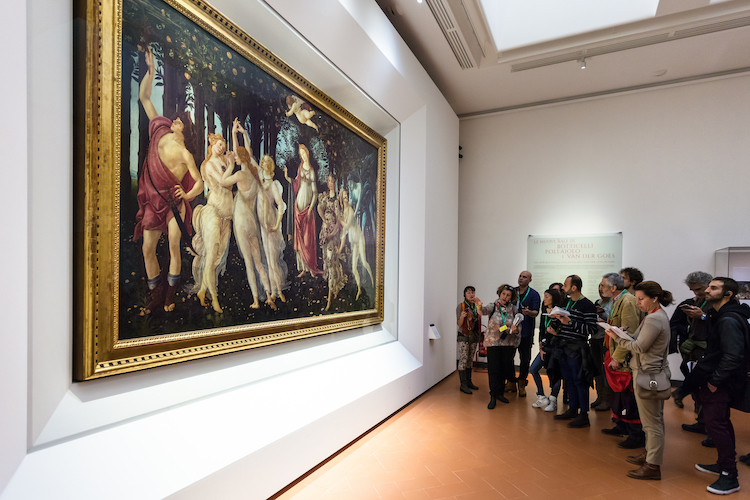
Visitors in the Botticelli Room of the Uffizi Gallery (Photo: vvoe via Shutterstock)
Related Articles:
8 Renaissance Artists Whose Work Transformed the Art World
The Mysterious History of the Marble ‘Venus de Milo’ Statue
The History and Legacy of Leonardo da Vinci’s Mysterious “Mona Lisa”
The Story Behind the Sistine Chapel’s Stunning Ceiling by Michelangelo
The Significance of Leonardo da Vinci’s Famous “Vitruvian Man” Drawing
